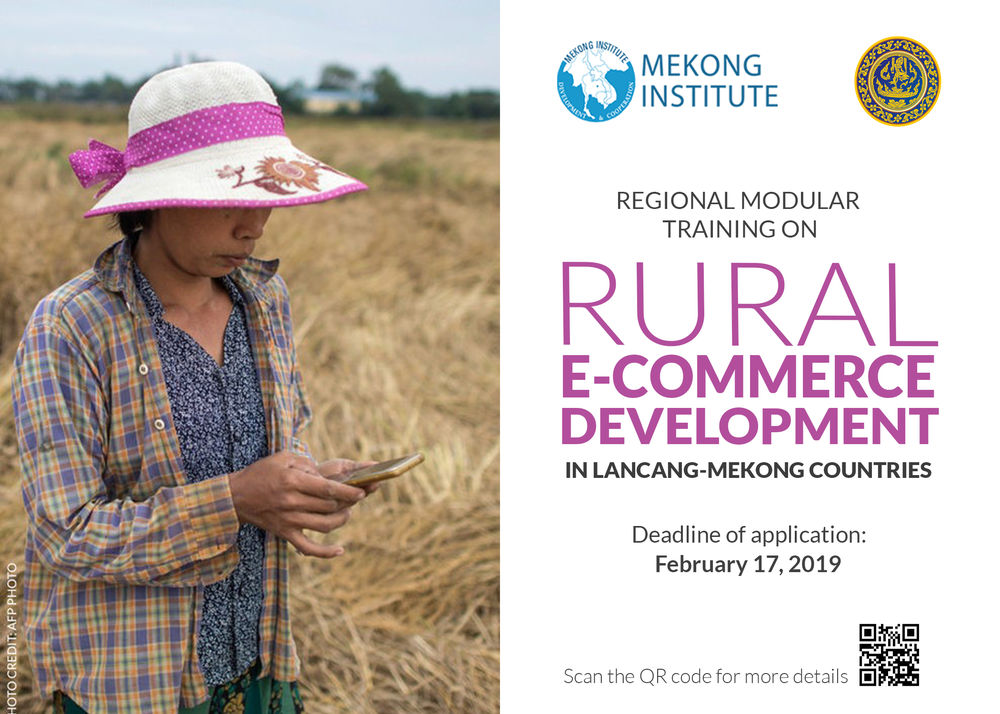Mekong Institute invites rural- and urban-based social enterprises to a regional modular training program on Rural E-Commerce Development in Lancang-Mekong Countries on March 25-29, 2019. The training aims to build the capacity of rural e-commerce development professionals from Cambodia, P.R. China, Lao PDR, Myanmar, Vietnam and Thailand. The training is part of a two-year project being implemented by MI in cooperation with the Ministry of Commerce of Thailand and funded by the Lancang-Mekong Cooperation Special Fund.
Anchored on participatory processes and action-based learning, the training will combine lectures, plenary discussions, case studies, group activities, role play, and simulation. Participants are expected to be aware of the full duration and content of the training program and the implementation of an action plan following the training.
The training program will comprise of the following phases:
- Learning phase – one-week training at the MI Residential Training Center in Khon Kaen, Thailand (March 25-29, 2019). During this period, action plans, comprising of individual e-market business plans and registration on e-commerce platforms like alibaba.com, will be prepared by training participants.
- Knowledge application phase – participants of the training will be encouraged to link with markets through e-commerce platforms with the MI team monitoring and providing technical and financial assistance. This phase will last for six months (one month for each enterprise to finalize their e-commerce business plan; two months for registration and launch on an e-commerce portal; and three months monitoring of business growth). This phase seeks to observe how rural-based social enterprises are able to access markets and the associated challenges, if any.
WHO CAN APPLY?
The training is designed for rural- and urban-based social enterprises that wish to develop their individual retail business on e-commerce platforms. Middle to senior level personnel of the following agencies/organizations are encouraged to apply:
Development and marketing agencies for One Tambon One Product (OTOP)/ One District One Product (ODOP)/ One Village One Product (OVOP)
Rural e-commerce and e-commerce service providers
Agriculture cooperative alliances/supply and marketing cooperatives
SME clusters, social enterprises and start-ups involved in e-commerce or rural e-commerce
Interested applicants are requested to submit (1) a completed application form; (2) one-page CV highlighting involvement in rural e-commerce; and (3) a copy of passport.
Send all requirements to Ms. Hao Wen, Program Coordinator at [email protected] and Mr. Toru Hisada, Program Officer at [email protected].
Deadline of application is February 17, 2019.
Final selection will be made by the MI team after evaluation of applicants’ qualifications and experiences.








